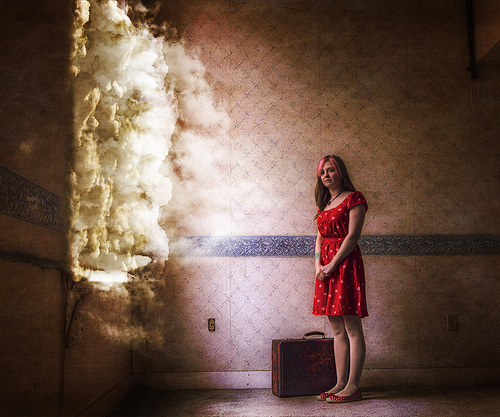In making her struggles and decisions about death public, Brittany Maynard has invited a welcome conversation about death and dying.
Now, I suspect many wouldn’t call the conversation “welcome”. Others welcome the opportunity to shame and shun rather than converse. For many in the church, it is an opportunity to shake our heads and say “isn’t that too bad” and walk away.
The most disturbing thing about conversations about self-determination or death with dignity, however, is that we don’t have them. Not anything we could actually call a conversation. More like high-minded opinions formed in the comfort of our own ignorance.
It is safe to stand up in church and declare every life is precious or sit on the couch and type away thoughts or gossip over coffee about current events. In these spaces, pure ideology is safe. We always preserve life we reason. Or I would never choose to end my life.
The hard part is facing death, dressed in a hospital gown, feeling so unlike yourself, puffy, red eyes surrounding you, and thinking yep, let’s have more of this. Tomorrow will be even worse? Hooray!
Or the newlyweds, not wanting to have a downer conversation about death, I don’t want to even think about life without you! And what we really hear is I don’t want to deal with dignity in death. I only want to love you when it is easy, like it is now.
Or when the parents bring up end-of-life plans with their children, the adult children stick their proverbial fingers in their ears and say la la la! I’ve seen this a lot. Age doesn’t seem to be a determining factor in maturity around death, either.
We don’t want to do death. We want it to be evil and distant and not at all something we talk about or have control over. In other words, we take the absolute least Christian response to death we can come up with.

Ethics and death
Unlike the church, which often avoids dealing with death because we are working too hard to eliminate grief and get people happy, it is the medical community that is leading the way on the ethics of death and dying. With death as a regular and natural part of their work, doctors and nurses see many patients die and many families in grief daily. They experience the trauma of death second hand more than anyone else in our culture and they are constantly thrust into situations in which decisions about life and death are not so clear.
A professional ethicist, working for a university hospital told my seminary class that the hospital has long been the vanguard of ethics around life, dying, and death in our culture. The medical community as a whole, and its members as individuals, have made many of the hard decisions that we couldn’t be expected to make. Decisions forged by timing, circumstance, and a gathering of specialists to determine the best course of action. Decisions made with a whole host of experience we can’t be expected to have.
In other words, our doctors and nurses have done more to confront the specter of death and dying than our churches. And for the most part, I trust their opinion more than your average Christian. Not because they are smarter or because of degrees they have attained, but because they are actually doing the work.
The medical community is far closer to consensus on death-with-dignity and easing the suffering of the dying than we are. I don’t think that’s a shame, however. I think that’s a good thing. Because they are doing this in community, with the help of ethicists and faith leaders, they can work as a team to find ways to move forward in our understanding of what it means to experience living and dying.
It is a welcome conversation because it is the very material of our faith: that GOD liberates the people, even from the fear of death. Brittany Maynard’s life, her decisions, and her advocacy are a gift to us. A gift of opportunity for conversation about living and dying. A gift that is, for us, never easily opened.

Leave a Reply